
Dan Wilson with guitar: “On the guitar I’d write songs… It was almost like the piano was this other thing I did.”
Semisonic’s frontman and go-to A-list collaborator for Taylor Swift, Adele, Birdy and more re-ignites his career as a solo singer-songwriter
Minnesotan Dan Wilson is a singer, songwriter, producer, multi-instrumentalist, and occasional cartoonist. He is best known as the lead singer of the band Semisonic, for which he wrote the Grammy-nominated smash Closing Time as well as other international hits including Secret Smile and Chemistry. Prior to that, he was a member of the band Trip Shakespeare, whose long-haired psychedelia influenced a generation of Midwestern bands long after their breakup in the early 90s.
Since Semisonic, Dan has released several solo albums, but it is as a highly sought-after songwriting collaborator that he has forged the most illustrious phase of an acclaimed music career, working with a diverse group of artists including Adele, Dixie Chicks, John Legend, Taylor Swift, Pink, Nas, Weezer, Carole King, and many others.
In 2007, Dan Wilson took home a Song Of The Year Grammy for Not Ready To Make Nice – one of six songs he co-wrote for the Dixie Chicks’ award-winning album Taking The Long Way. A few years later, he contributed three songs to Adele’s album 21, including the huge international hit single Someone Like You, which he also produced, earning himself another Grammy, this time for Album Of The Year.
We met with Dan in Central London, the day before a solo performance at St Pancras Old Church, which coincided with the release of his third solo album Love Without Fear…
What’s your earliest memory of music?
“We lived in North Carolina and my brother and I used to ride to the beach with our mom and she’d sing songs in the car, like You Are My Sunshine and an American folk song called Long Long Ago. It was probably a way to keep us from quarrelling. So my earliest musical memory was probably when I was three years old, being in the back seat of our car, sunshine streaming in and not being able to see out the windows – I think I was too short!”
How about the first time you made music? What was the first instrument you picked up?
“The first memory I have of playing an instrument was taking piano lessons when I was seven. The teacher I had taught some music theory things like the circle of fifths and harmony very early. She was a smart lady. So I remember doing almost ‘homework’ for my piano lessons, as well as practising scales.”
Were you writing songs at that time?
“No, in fact I never connected the piano with music making until I’d been studying the piano for maybe eight years. I got very good at classical piano, but it was almost like being a ‘jock’ or something – it was like an athletic pursuit. But for years alongside of that I played the guitar, self-taught, and on the guitar I’d write songs when I was 12 years old. It was almost like the piano was this other thing I did.”
What compelled you to write a song at that point?
“My brother and I got a guitar as a joint gift, when he was 10 and I was 12. We learnt chords together and both listened to a lot to The Beatles, and we figured they wrote their own songs so we could write our songs too. Our parents were really into The Beatles, Carole King, James Taylor and things like that. My dad was in a doo-wop group when he was a kid. They made one single and we had it around the house – it was like an icon.”
I’D GET UP EARLY, DRINK AN ESPRESSO, START WRITING SONGS AND BY NOON I WAS HOPING I’D HAVE A FINISHED SONG, EVERY DAY
Can you remember the first song you wrote?
“I can’t remember the song itself. I just remember my brother and I were in Northern Minnesota and we each tried to write a song that was like George Harrison. Mine had a cycle of chords that I found interesting, but his had a great melody, so I was kinda jealous of his.”
Joining the dots between then and your first significant band, was that Trip Shakespeare?
“Trip Shakespeare was a band that my brother Matt started when he and I were in our early 20s. It was a trio – him, a bassist and drummer – and they made an album that had two guitars on every song, so he invited me to join the band as a guitar player, even though I hadn’t been a guitarist in any bands before! I was just willing to join.”
“Then I started helping my brother write songs for the band, but I didn’t really get that serious about it. We had a deal with A&M Records and did several albums, but I don’t think I really wrote a properly good song for Trip Shakespeare. I kind of figured it out right after that band. I realised a song needed to be ‘true’ because it would feel substantial and real.”
What do you mean by ‘true’?
“It has to based around something that really happened to me. That’s how I do it. Every song I write has to be about something that really happened… Except when it’s a lie, because it sounds better! You need to be able to lie at the very end to make the story work, but most of it has to be totally true and then the lie is usually just a rhyming word or something that sounds awesome.”
Is that a rule you gave yourself throughout your songwriting career?
“Yeah, only because that was my way in. Some people can just make it up and write about characters – like Paul McCartney with all his various vivid working class types that populate his songs. I can’t seem to do that and have it feel real, so I do the opposite. I’ve tried writing about characters. It’s fun but it always sounds fake, so I throw it away.”
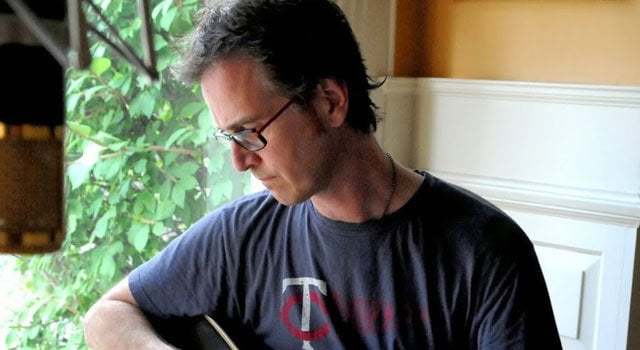
Dan Wilson in songwriting mode: “I like to be in a room with a high ceiling and a window. I just need natural light…”
Going from Trip Shakespeare to Semisonic, what was the big break?
“It was interesting, our first full-length album with Semisonic was called Great Divide and I really thought it was jammed with hits. Instead it was really well reviewed and the critics loved it, but it sold really poorly. It was almost received as an art project, as opposed to a greatest hits collection that I thought it was.
“So I actually took that as a kind of mission and for Feeling Strangely Fine I just thought I’m going to do an art project – one artistically interesting song after the other. And of course, ironically, that’s the album with all the hits on it! So you really can’t order your life’s events as though they’re on a menu. It just sort of happens as it happens.”
Do you think that was because you weren’t trying to write a hit?
“What I was really trying to do was be as awesome as I could. Just relentlessly pushing everyone to be at their best and do great work. And it was rewarded – that album was big. So that made me feel like maybe this is my path, I’m just going to make things as great as I can.”
Were all the songs from Feeling Strangely Fine written before you went into the studio?
“I wrote maybe 60 songs in the six months before the sessions, and there were 15 that we really liked. In the studio I wrote a couple more, but we were busy recording – we weren’t spending a lot of time writing. But I wrote Never You Mind in the mornings before sessions. I would come in early and play the piano and try to write songs.”
I WOKE UP EARLY ONE MORNING AND THE SONG ‘SECRET SMILE’ WAS IN MY HEAD, IN A DREAM
60 songs is a lot of material. Were you prolific and the songs were flowing, or did you force yourself to write.
“I did one exercise that was interesting: I spent a month with the vow to myself that I’d finish one song a day, the entire thing, from beginning to end, without caring whether it was good or bad. 30 of the songs were from that, and a bunch of them ended up on the record. I mean, a lot of them were bad, but a handful were really good.”
Can you tell us about one of those typical days. Did you have a routine?
“I’d get up early, drink an espresso, start writing songs and by noon I was hoping I’d have a finished song, every day. Some of the songs were pretty good and this momentum started to build up. For example, during that period I woke up early one morning and the song Secret Smile was in my head, in a dream. I quickly wrote it down and then I fell back asleep. Then later in the morning I went back to the song and I sang it to myself, played it on the piano, and I was thinking this is actually really good, this must be stolen from something. Then for the next month I’d play it for all my friends and say ‘Is this something you recognise?’ But they’d say ‘No I’ve never heard that before.’ I’d ask everybody and they’d say ‘No, that’s a new song.’
“I learned later that happened to McCartney with Yesterday, which is amazing to me. He also had the same experience of assuming that it was copied from some other source. That was my initial instinct, but nobody’s turned up to say I took it!”
After the huge success of that album, did you find it difficult to write the follow-up?
“I don’t know, I can’t tell. When Feeling Strangely Fine came out, I had a baby daughter that was in hospital for a year and this was very damaging to my creativity. So I can’t really tell if success made it difficult for me to get back in touch with my musical passion, or that disaster in my life.”
So you like to create in a stable environment?
“I need stability, I need routine, I need simplicity. I can’t abide chaos. It’s better for my art if things are the same. It’s not great for my life – I resist change in a way that’s almost pathological! But it’s partly because I know that if I’m a routine, I’m making better art, so I sacrifice things about my life in order to stay in a routine that keeps my art rolling.”
Do you like writing alone, or do you prefer to collaborate?
“In my early days with Trip Shakespeare I was a painter. I sold a lot of stuff and it actually went very well for me, but being a painter is a very solitary life. You’re alone for nine hours a day, so it’s a major contrast between that and being a musician, which is so social. You’re in front of hundreds of people and they’re all screaming and yelling, then you’re in a van, joking and laughing. Music is a much more connective and interactive thing than visual art, so I probably lean towards collaboration because I like being with people, as opposed to writing things all alone, which is rewarding but less fun.”

Dan Wilson: “When I asked people in Minneapolis if they wanted to write a song with me, they all said no!”
How did you go from Semisonic to writing with other artists?
“I decided to be a co-writer, but the world didn’t let me do it for a while. The first maybe four Semisonic songs I wrote with Jacob Slichter, the drummer in the band, but he’s a very slow songwriter – he writes a great song every two years (and I mean great!) But that was a positive experience and writing with my brother was a positive experience, and then in 1999 I decided that I was going to write with other people. It wasn’t really a thing for a rock musician at that time, so when I asked people in Minneapolis if they wanted to write a song with me, they all said no!
“Then a mutual friend introduced me to Bic Runga, who was a New Zealand-based singer-songwriter, and she and I wrote a song that ended up in the movie American Pie. That was my first intentional co-write. Then my publisher introduced me to Carole King, and she and I wrote a song together: One True Love, that’s on the third Semisonic album. That was an amazing experience. She basically showed me how she does it, which is very open, lots of ideas. I’d play something and then she’d go, ‘Maybe the next thing could go like this. Do you like this?’ Then she’d play something else and go, ‘What about this? Oh, you don’t like that, what about this?’ It was a major learning experience for me and she’d been a hero of mine from way back, so that was like a major lucky break.”
Do you have the same approach now with any writing session, whether it’s the Dixie Chicks or Taylor Swift or Adele?
“Yes. When I show up at a writing session, I assume the conversation is going to lead to an idea that becomes a great song. Sometimes I show up with a couple of specific ideas in the back of my mind, to share, and then other times my instinct tells me it’s going to happen from shooting the breeze and hanging out.”
How do you choose your collaborators, or do you not get a choice?
“I think they choose me! I have way too little time to collaborate with all the people that I wish I could, so I do have to be particular, I guess. But initially they approach me with the idea.”
Do you ever put songs out to get pitched?
“Once in a while I’ve written a song that got covered by somebody, but I don’t very often write a song to pitch it. The idea of writing some generalised hit for anybody just seems really boring to me, so I can’t do a good job at it. I like to have a chemistry with somebody in the room and hear their voice trying out the idea.”
So do you ever write a song idea and then think, ‘That’s too good, I better keep that for me!’?
“My principle about ideas is never to save one. You’ve got to spend the best idea, today, now, because it’s a way of telling your mind, ‘No problem, you’re going to come up with a better idea.’ I think when you start hoarding ideas, and being precious and protecting them, you’re telling yourself you may not come up with a great idea again. So I always spend the idea and assume I’ll come up with a better one, which has always been true. I mean, maybe eventually that’ll stop.”
I WROTE A SONG WITH JAMES MORRISON AND MARTIN TEREFE WHILE THEY WERE IN A SWIMMING POOL. THAT WAS FUN… FOR THEM!
So you don’t worry about writer’s block?
“I don’t know what that is! Maybe I will one day, but I’ve never experienced anything like that.”
How do you record an idea that comes up, like you had with Secret Smile?
“I’ve tried a lot of different storage and retrieval methods for musical data. I have about a thousand song ideas in my voice memos in iTunes, but it’s very difficult to retrieve those ideas – you can put it on shuffle, do the dishes and you might hear 30 ideas, but you’re not going to be able to glance at them. So I’m stuck with a method I’ve used for a long time, which is a stack of notecards and each one has a phrase, title or guitar riff on it. If I’m at the piano and I think of something, I’ll take one of the blank ones, and I’ll write down the idea and then I’ll stick it in the deck, so it’s ready for me to randomly come upon it later.
“When the time came to write some songs for Love Without Fear, I decided I was going to treat the stack like I was his co-writer and help it finish songs. Like I’m schizophrenic, the stack was me beginning the song, and me taking a card off the stack was like me finishing the song for the ‘other guy’, and it worked! I think eight songs on the record came from a card. Most of the songs all came from little phrases that were on that deck of cards.”
What part of songwriting do you find the hardest?
“I’d say it’s finishing lyrics convincingly. The last two or three lines, not throwing it away, is the hardest part. I want it to be awesome so that can be laborious and you really be like struggling. The rest is easier.”
Which instruments do you tend to use?
“I mostly go back and forth from guitar and piano. I like it when people bring different tuned guitars into the studio. I was with Birdy recently and she plays a tenor guitar – which is a four-string giant ukulele, essentially – and so all her voicings are very strange. That makes simple familiar ideas seem unfamiliar, so that can be cool.”
You say ideas come anytime, anywhere, but where do you prefer to write when you’re doing a co-writing session?
“I’ve written songs in a lot of different settings. I wrote a song with James Morrison and Martin Terefe while they were in a swimming pool and I was sitting next to the pool with a guitar. That was fun… for them! Personally I like to be in a room with a high ceiling and a window, and a piano. I just need natural light and not feeling pushed downward.”
What’s been the best thing about making your new album, Love Without Fear?
“Last year I got really involved with my visual art again, and I made an illustrated book for the album, that’s being sold as the deluxe version of the record. That was a really interesting outlet for me, especially because I took an entire month doing the book and when I was done I was really excited about writing songs again. Also, I’ve been making illustrative videos for the songs, like music videos that are jam-packed with drawings, and that’s been really cool and I want to do more.”



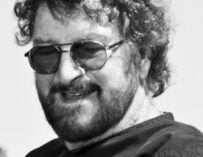
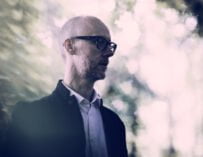

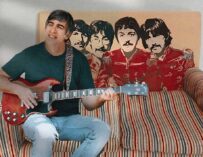


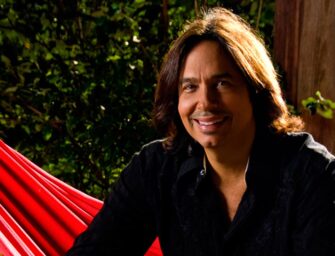
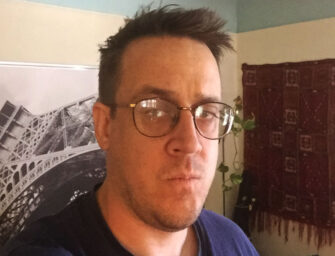

























Related Articles